Resources for Phonics Teaching
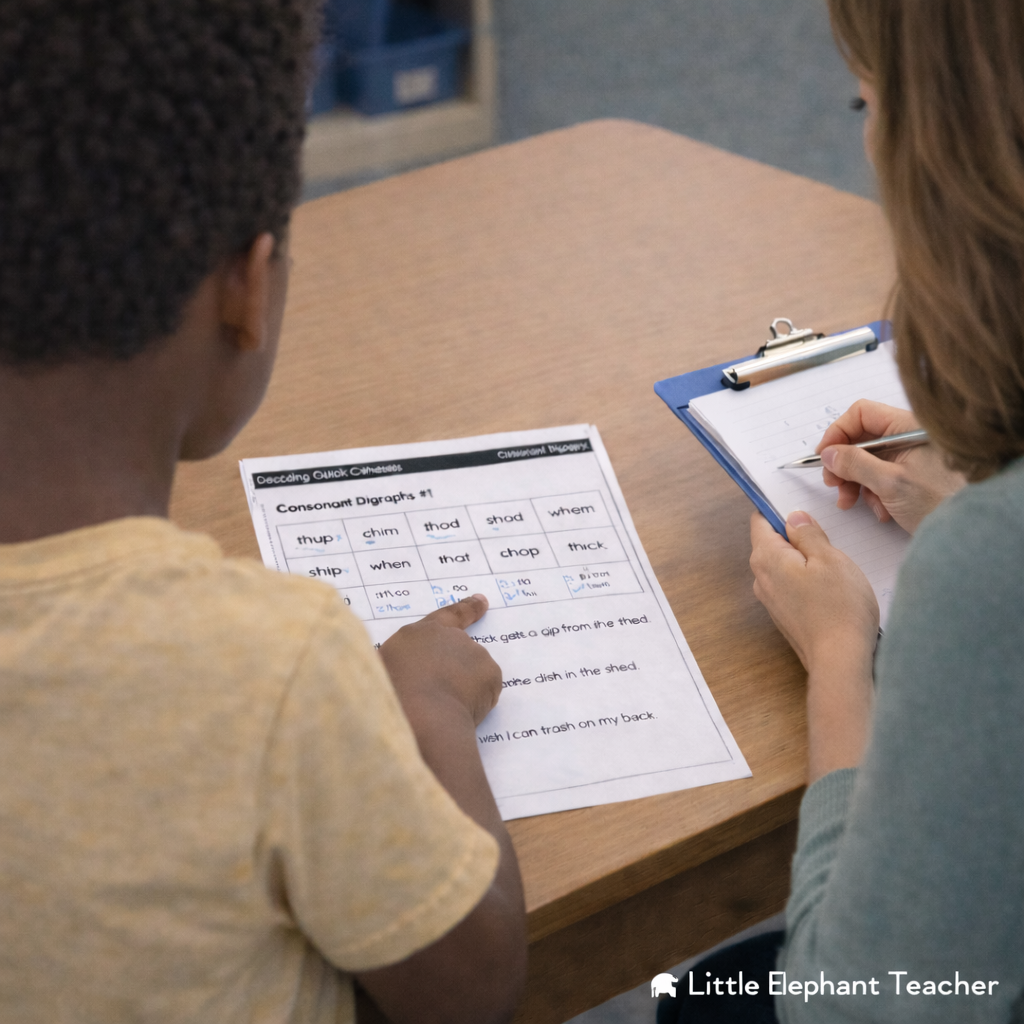
How to Use Phonics Data to Drive Instruction (Not Just Grouping Students)
Teachers collect a lot of phonics data — but many still feel unsure what to teach next. This post explains how to use phonics assessment data to move beyond grouping and identify specific skill gaps. Learn how to analyze error patterns, determine the first missing skill, and use progress monitoring to make confident, targeted reading intervention decisions.

How to Identify Students Who Need Phonics Intervention
Learn how to identify students who need phonics intervention using observable reading and spelling behaviors—not labels or guesswork. This post walks through early red flags, common misconceptions, and simple classroom checks to help you make confident, data-informed instructional decisions.

UFLI-Aligned Phonics Placement Assessment Test: Know Where to Start
This guide breaks down how to use the UFLI-Aligned Placement Assessment to test and find the right starting point for every learner. Whether you're new to UFLI or refreshing your small groups, this post explains how the UFLI phonics placement test pinpoints decoding, spelling, and automaticity so you can begin instruction with confidence. Discover how simple and effective the UFLI placement test can be for your classroom.

UFLI Aligned Assessments: Simplify Progress Monitoring for Reading, Decoding & Spelling
Simplify your UFLI progress monitoring routine with ready-to-print decoding and spelling assessments, built-in graphs, and teacher tips for tracking student growth—plus a free downloadable Friday Progress Monitoring Checklist to keep your data organized and actionable all year long.
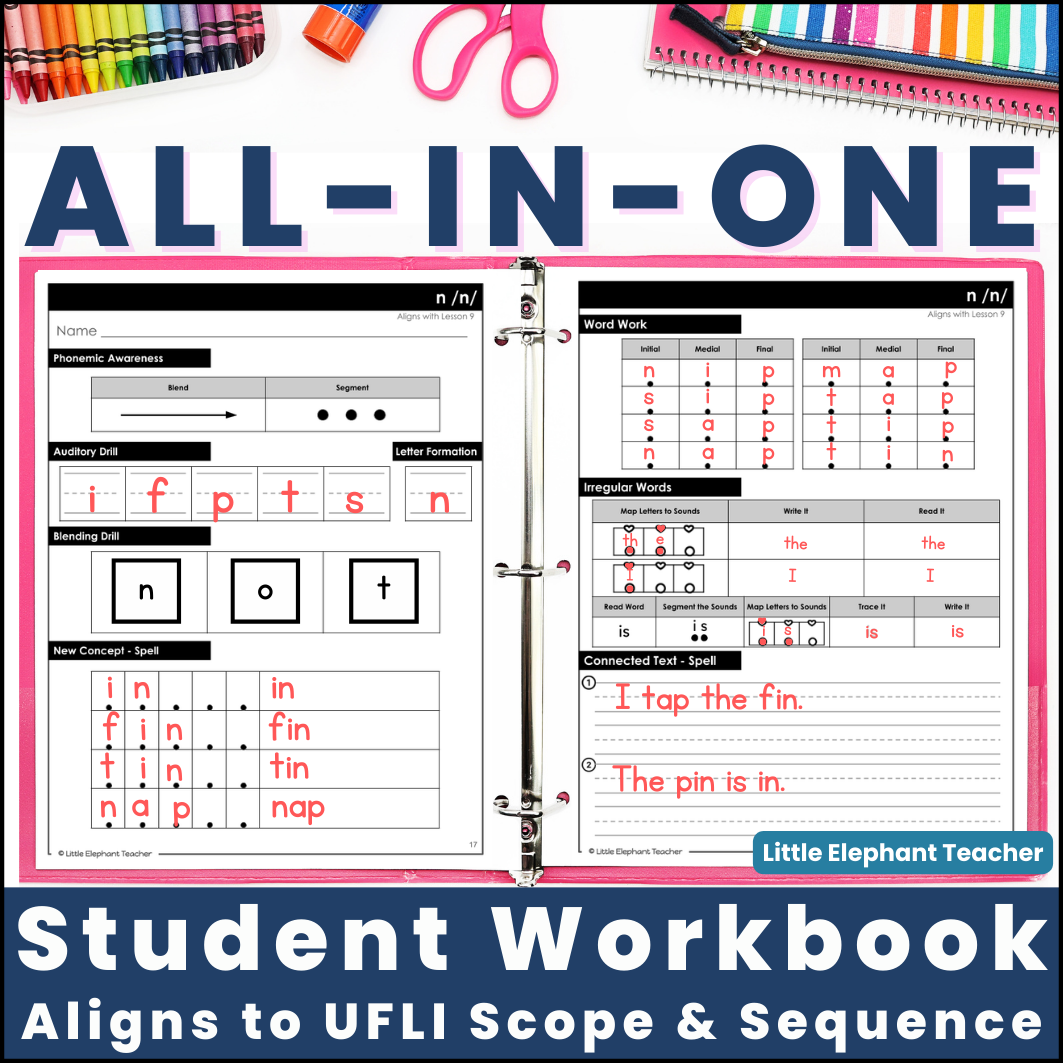
How the UFLI-Aligned Student Response Workbook Can Save You Time and Boost Engagement in Every Lesson
Teaching with UFLI Foundations is powerful—but the constant juggling of whiteboards, markers, and response sheets can eat up valuable lesson time. The UFLI-Aligned Student Response Workbook keeps everything in one place, helping you save prep time, reduce transitions, and keep students engaged from start to finish. Discover how this simple tool can transform your UFLI lessons and strengthen reading, spelling, and writing skills.
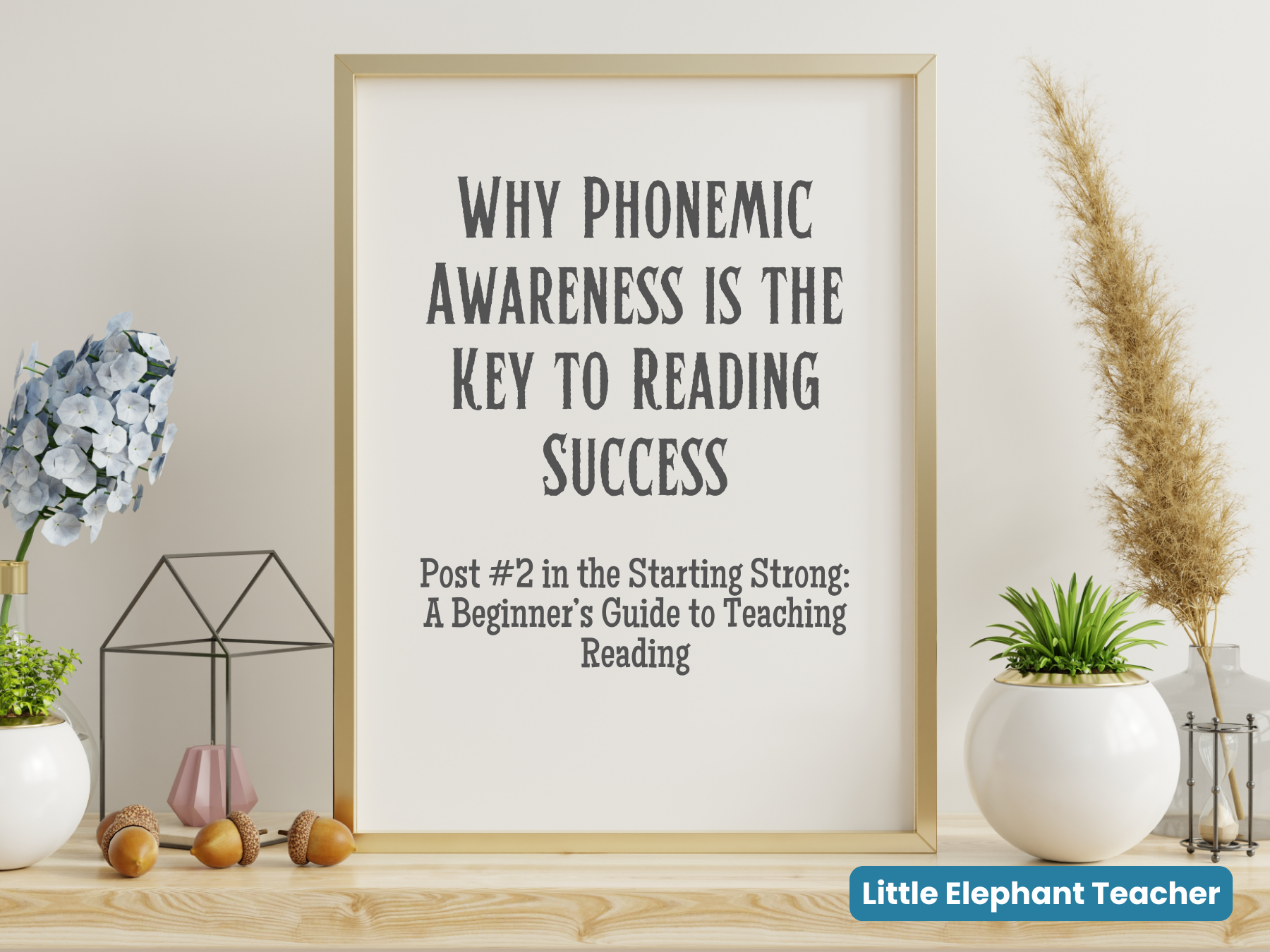
Why Phonemic Awareness is the Key to Reading Success
Phonemic awareness is the secret ingredient to reading success, yet it’s often overlooked. In this post, we’ll explore what phonemic awareness is, why it’s essential for young readers, and how you can teach it effectively using fun, proven strategies. Whether you’re a parent, teacher, or reading specialist, you’ll walk away with practical tools—like Orthographic Mapping Sheets, Phonics Word Ladders, and the Sound Swap Game—to help every child build a strong foundation for lifelong literacy. Let’s unlock the door to reading together!
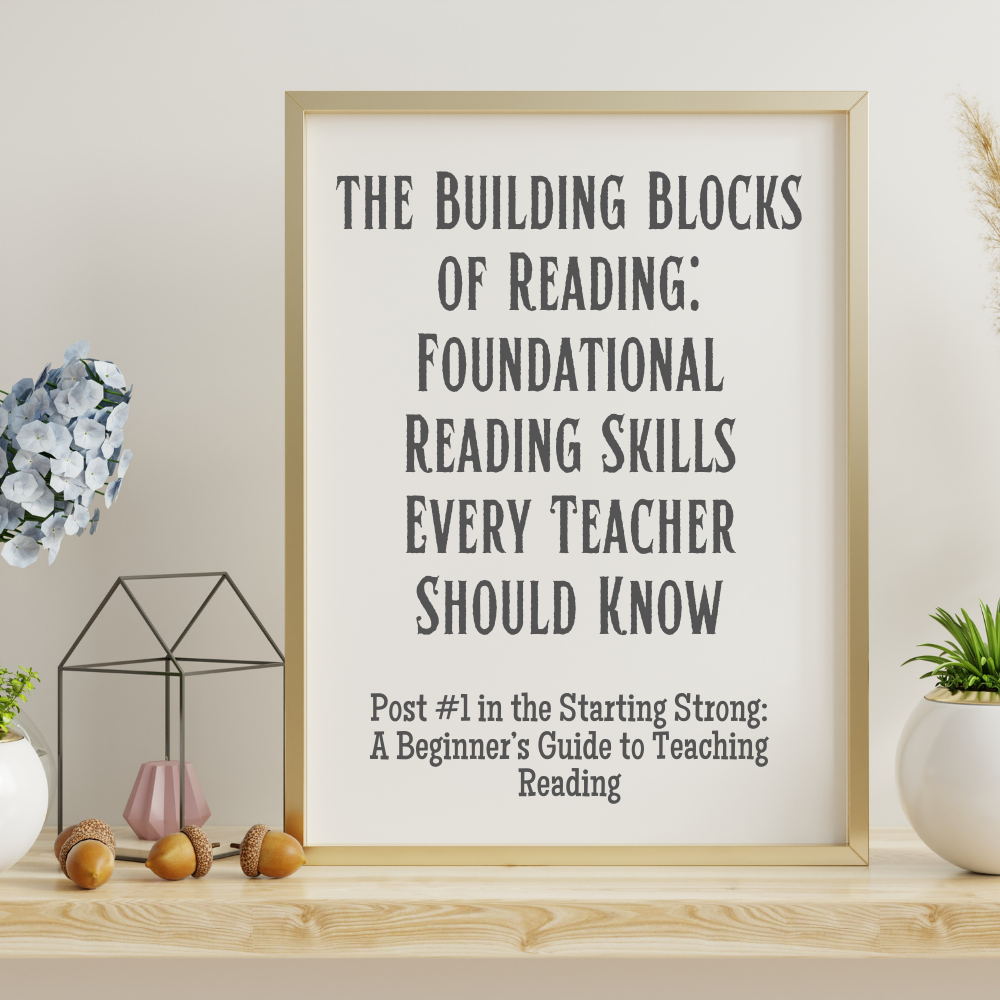
The Building Blocks of Reading: 5 Foundational Reading Skills Every Teacher Should Know
When I first started teaching, I thought reading meant handing out books and saying, “Sound it out.” Then I learned about the five pillars of reading instruction and everything changed. This post breaks down each pillar and shows you how to build foundational reading skills using practical, research-backed strategies you can apply in your classroom right away.

Build Foundational Skills with UFLI Aligned Irregular Sight and Heart Words Decodables
Mastering irregular words can feel overwhelming for young readers, but the right tools can make all the difference. The UFLI Aligned Irregular Sight and Heart Words Decodable Passages with Comprehension Questions is designed to give educators the support they need to help students tackle these challenges with confidence.
This resource offers structured passages that not only build fluency but also strengthen comprehension, creating a well-rounded approach to reading success. Whether used in small groups, interventions, or home practice, it fits seamlessly into your teaching routine.
Want to see how this resource can transform reading in your classroom? Explore the full blog post to learn more and get started today!

Maximize Your Reading Instruction with the Comprehensive UFLI-Aligned Bundle
The Comprehensive UFLI-Aligned Bundle is your all-in-one solution for effective reading instruction! With Decodables Passages with Comprehension Questions, Progress Monitoring Assessments, a Student Workbook, and an Irregular Heart Word Guide and Decodables, it’s designed to build skills and save you time.

How to Determine When a Student is Ready to Move Forward in Phonics Skills
Knowing when a student is ready to advance in phonics can be tricky, but it’s all about balance. This blog dives into how to combine assessment data, daily observations, and your professional judgment to guide your decision-making. Plus, grab a free Phonics Progress Monitoring Checklist to support your teaching and make progress tracking a breeze!
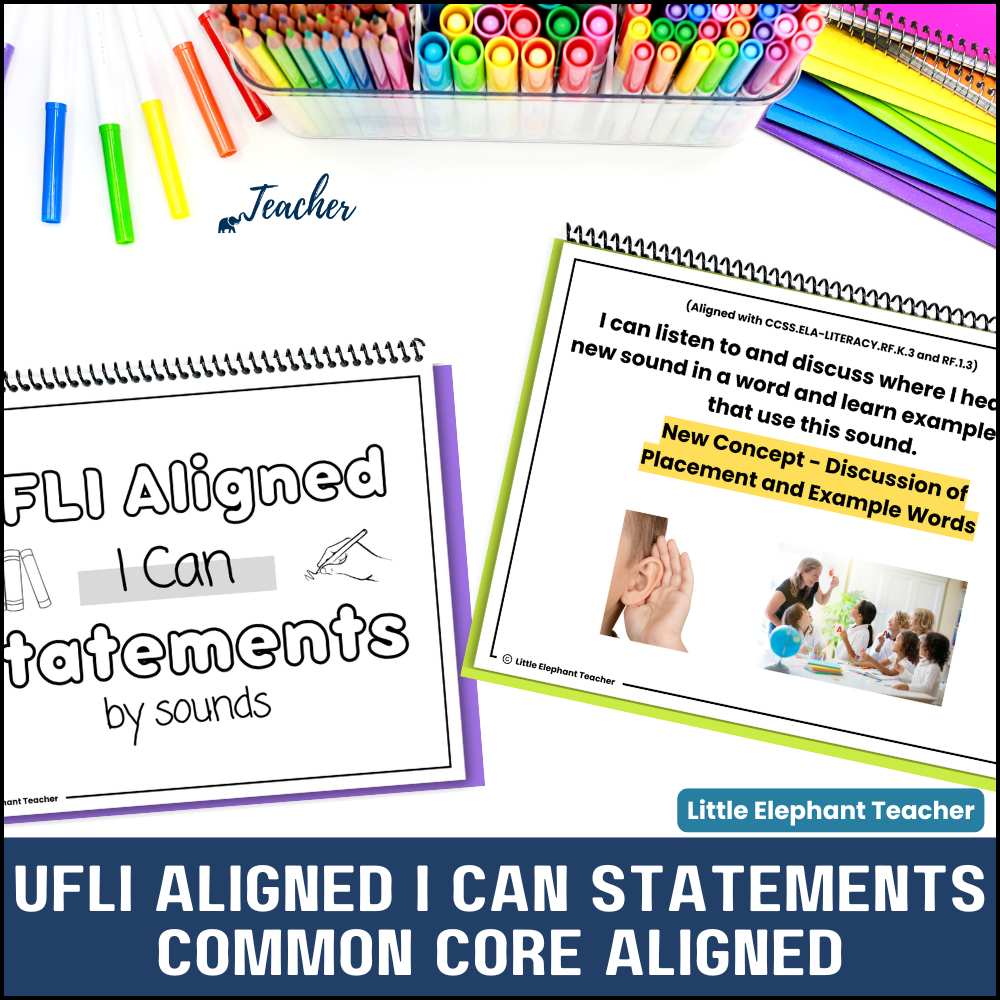
Empower Your Students with UFLI-Aligned "I Can" Statements
Clear goals are the key to unlocking literacy success! Discover how UFLI-Aligned "I Can" Statements can transform your phonics instruction by giving students focused, achievable targets in phonics, blending, reading, and spelling. This free resource, perfectly aligned with Common Core Standards, empowers educators to track progress, celebrate achievements, and build confident readers. Whether you’re a teacher, reading specialist, or Science of Reading advocate, these statements provide the tools you need to make learning intentional and fun. Don’t miss the chance to inspire your students with meaningful goals—download your copy today!

How to Teach UFLI Aligned Irregular Heart and Sight Words - The Guide!
The UFLI Aligned Irregular Sight and Heart Word Guide is a must-have resource for any educator. Let’s face it—teaching these words can feel overwhelming. Between planning lessons, finding materials, and figuring out how to explain those tricky spellings, it’s easy to feel stretched thin. This guide simplifies the process and makes teaching irregular words more manageable.
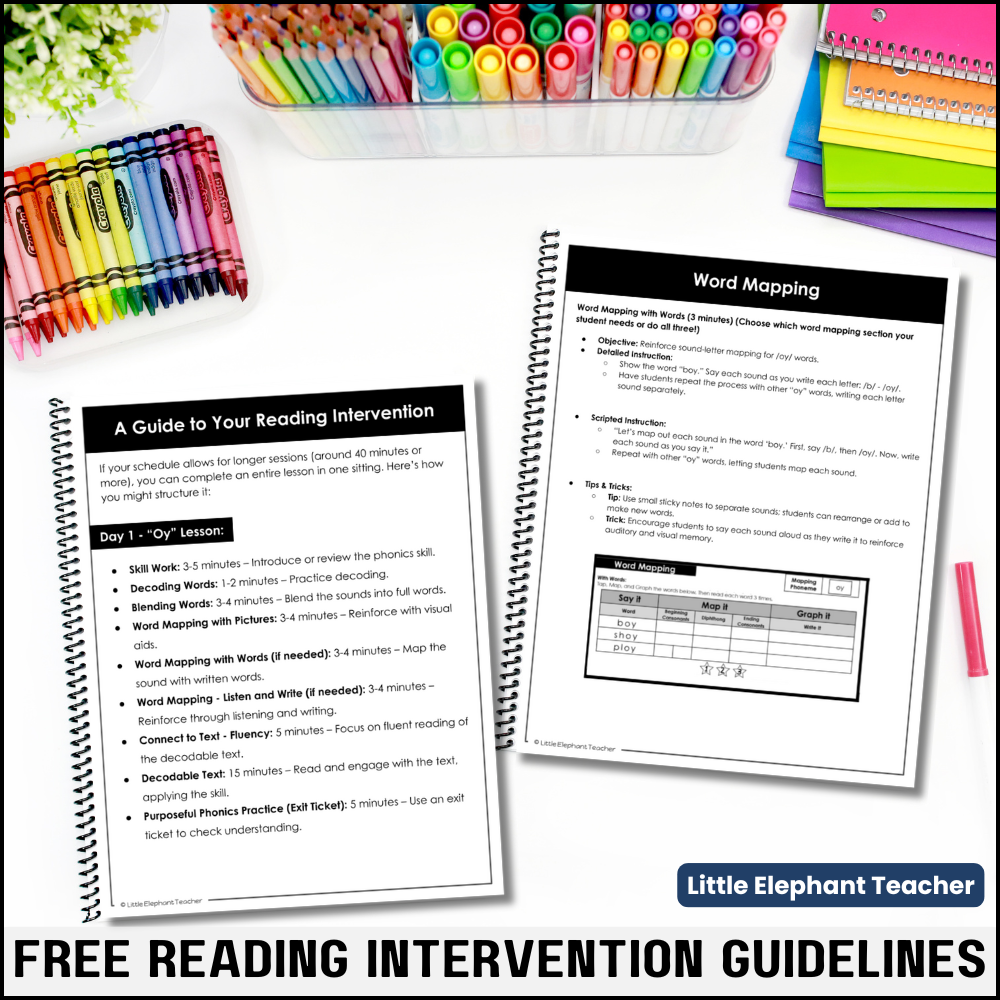
How Often Should I Meet with My Reading Intervention Groups?
Wondering how often to meet with reading intervention groups? Get practical advice, sample lesson plans, and free Reading Intervention Guidelines, including a two-day, 20-minute lesson breakdown and a 40-minute plan. Learn why session frequency and duration matter and how to structure lessons for optimal reading growth!

Mastering 2-Day UFLI Lesson Plans: My Top Tips and Tricks for Success
As a reading teacher, my goal is to help students become confident readers. In this post, I share my top tips for success with UFLI’s 2-Day Lesson Plans, which have transformed my classroom. I also provide a free scripted lesson plan to guide your teaching, enhance phonics skills, and save you time in planning!
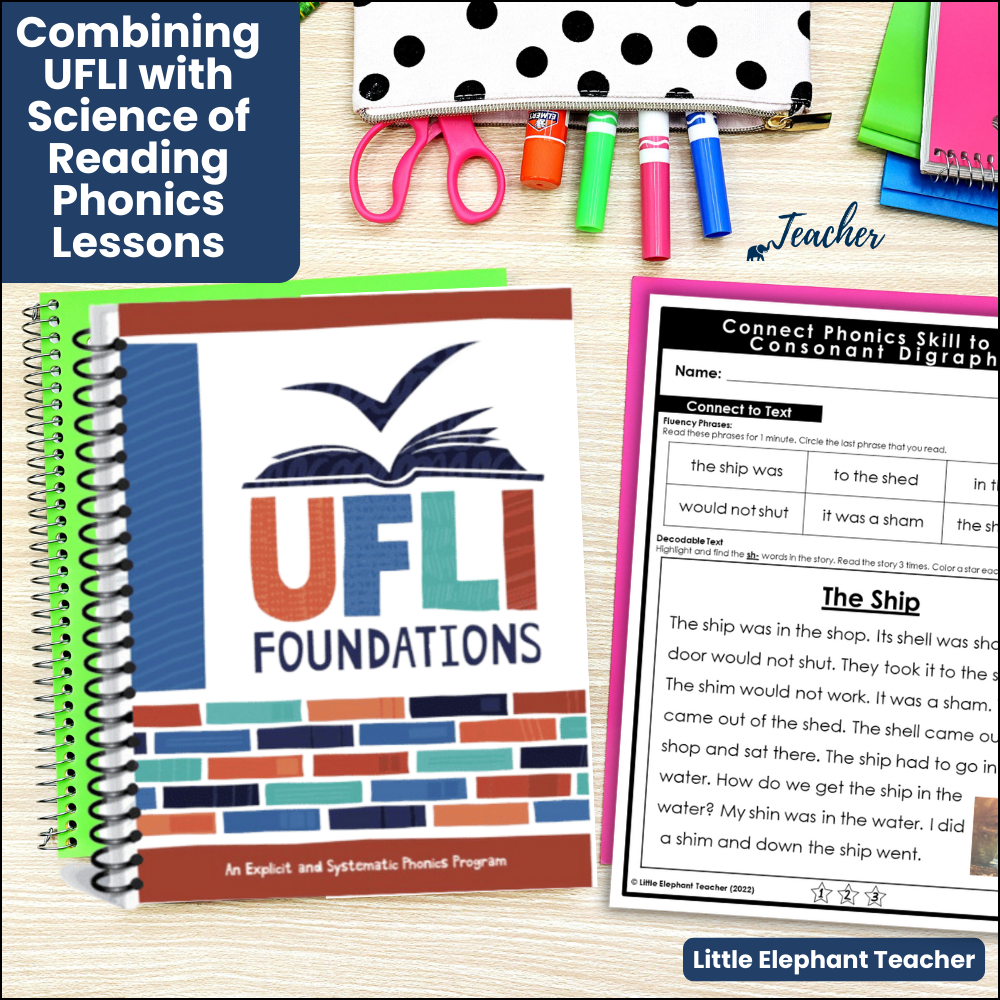
Combining UFLI with My Science of Reading Phonics Lessons to Supercharge Student Growth
Our district’s new mandate to use UFLI in Title Reading Groups initially raised doubts, as my personalized Science of Reading Phonics Lesson Plans were already producing impressive results in decoding and fluency. However, combining UFLI’s structured approach with my Word Recognition Lessons created a powerful synergy that supercharged student growth. Together, these resources have provided a comprehensive toolkit, boosting both teacher confidence and student reading skills, leading to remarkable improvements in fluency and decoding.

Why You Need These Amplify CKLA Decodable Passages and Readers for Your Lessons
Unlock reading success with our Amplify CKLA Decodable Passages and Readers! Perfectly aligned with CKLA skills, they boost fluency and comprehension. Discover how this resource transforms learning—read the full post for all the details!

Science of Reading Curriculum and Word Recognition Lesson Plans
This emphasizes the importance of the Science of Reading Curriculum in fostering word recognition and supporting early literacy development. It outlines the key elements of an effective lesson plan, such as Skill Work, Decoding and Blending, Word Mapping, and Connecting Phonics Skills to Text. Each component is accompanied by specific objectives, engaging activities, and actionable strategies, encouraging educators to seamlessly integrate these practices into their teaching and to share their insights and experiences.
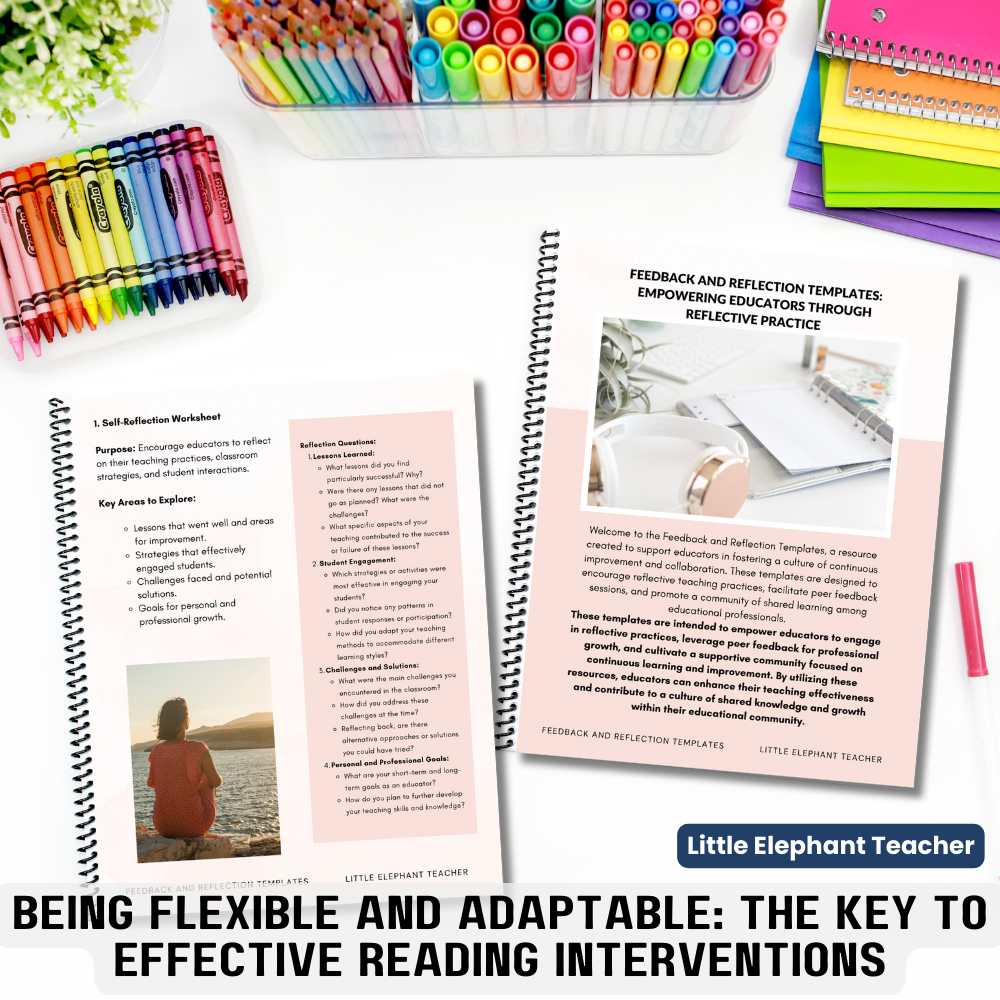
Being Flexible and Adaptable: The Key to Effective Reading Interventions
Discover the key to reading success with our Freebie Pack for educators! Tailor phonics interventions to suit individual needs, ensuring every student thrives. Our pack offers essential tools for feedback and reflection, empowering you to adapt and fine-tune your teaching methods. Join us in transforming phonics education through flexibility and adaptability. #PhonicsSuccess #AdaptiveTeaching
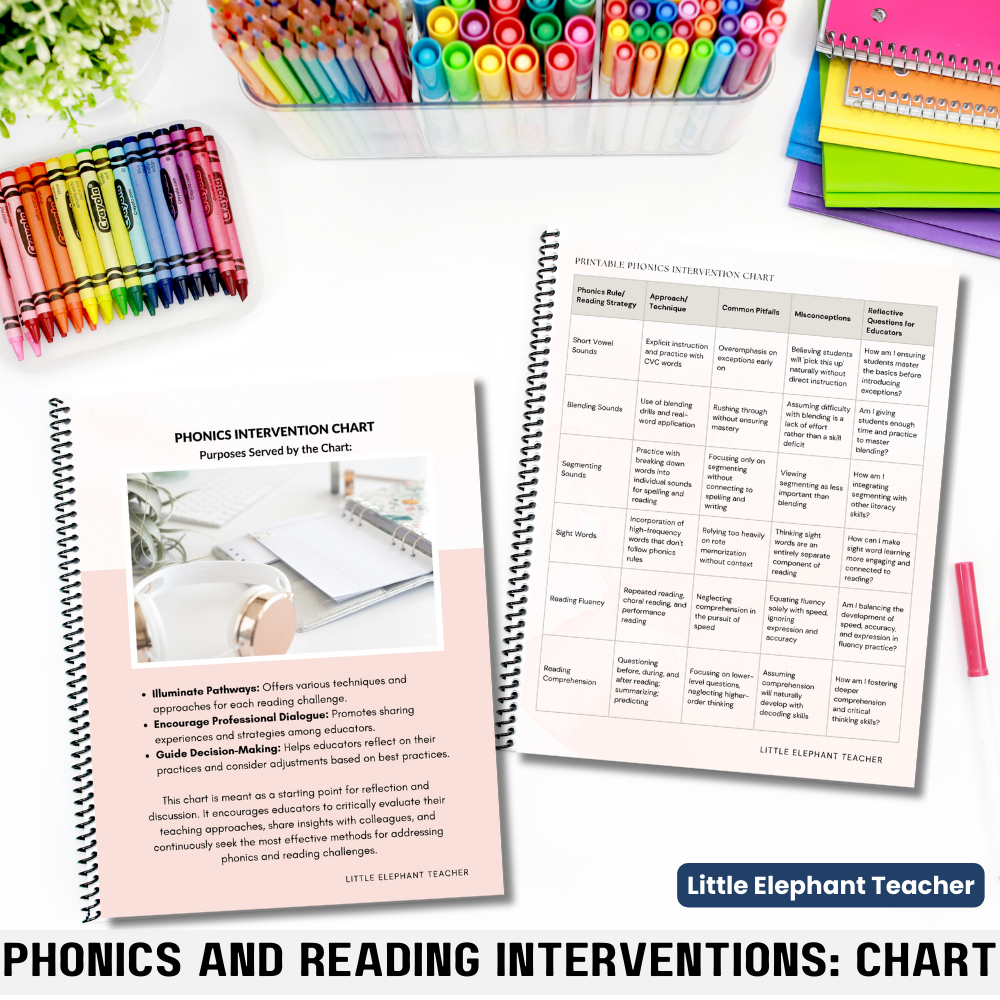
Navigating Phonics and Reading Interventions: The Power of a Starting Chart
In today's post, we're tackling a challenge many educators face: navigating the complex maze of phonics and reading instruction. It's a common scenario—you're equipped with enthusiasm to enhance your students' literacy skills, yet the path seems fraught with obstacles. Balancing individual learning needs with overarching class objectives often feels like navigating without a map. However, there's a beacon of hope in this intricate landscape—a versatile, editable chart designed to illuminate your teaching strategy and simplify phonics reading interventions. Join us as we explore how this tool can transform your approach to teaching phonics and reading, making the educational journey smoother for both you and your students.

Phonics Learning: The "How Far Back" Dilemma
Hello, dedicated phonics educators and passionate learning enthusiasts! Today, we're venturing into a territory that's both complex and critical in the world of phonics education—the "How Far Back" Dilemma. This conundrum is all too familiar for those of us in the trenches of lesson planning. It's that pivotal moment when you're poring over your curriculum, questions swirling in your mind about the optimal starting point for your students' phonics learning. How far back do you need to go to ensure all students are on board, without inadvertently stalling their progress?